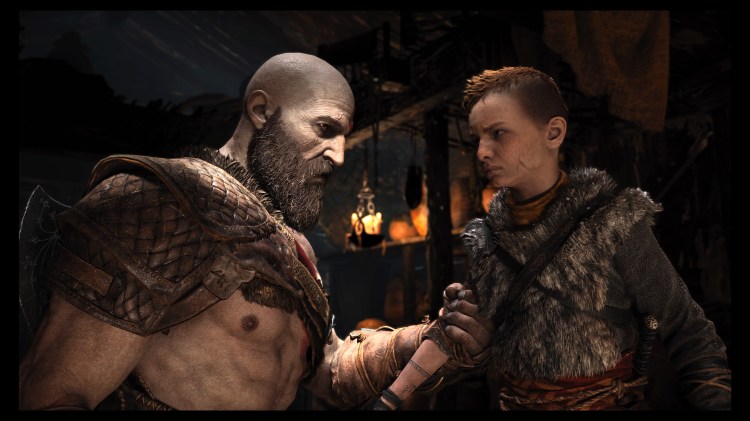In 2005, God of War was one the coolest things I ever played. The PlayStation 2 action game was fast-paced, brutal, and edgy. But after several sequels and prequels, both its formula and attitude felt stale. I began rolling my eyes whenever Kratos yelled or ripped the head off some mythological beast.
The PlayStation 4’s God of War is changing a lot when it launches April 20. Kratos is now fighting in a Norse setting instead of ancient Greece. But that new locale isn’t the most radical departure. This God of War is slower, less gory, and less angry. Kratos is no longer a one-dimensional machine of rage and vengeance. He’s a father trying to understand and train a young son.
This new Kratos makes God of War relevant again.
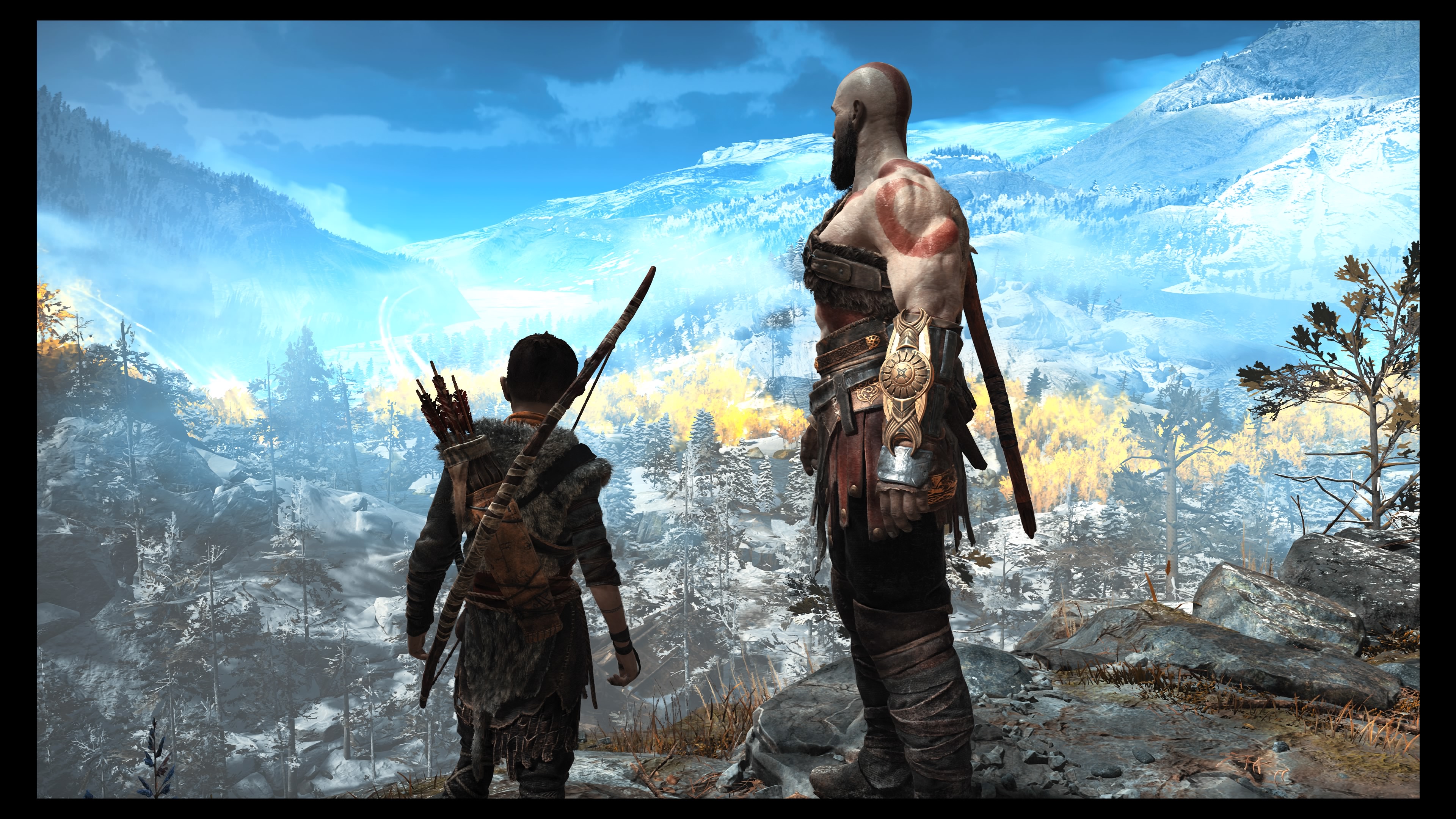
Above: “Look, Atreus. Everything the light touches is our kingdom.”
What you’ll like
A more mature god
June 5th: The AI Audit in NYC
Join us next week in NYC to engage with top executive leaders, delving into strategies for auditing AI models to ensure fairness, optimal performance, and ethical compliance across diverse organizations. Secure your attendance for this exclusive invite-only event.
The old Kratos was fun in that generic action hero sort of way. He had little character development. The tragic past was for his motivation, not for our contemplation. Kratos was like The Hulk. Kratos smash … well, really, Kratos kill. Horrifically.
The end of God of War 3 left little for the Spartan to do. He had killed all the gods and had his vengeance. So how does he end up in these lands of the Norse? How did he find love and a family after everything he went through. These questions build immediate interest in the revival.
And Kratos himself, who used to be an avatar of destruction, is now interesting. He’s still angry, but not in a generic, shout-happy kind of way. His anger is something he tries to control (if often unsuccessfully). It comes out as impatience, rebuttals, and refusals, most of them directed at his young son, Atreus.
Kratos’s child is with him through most of their journey. They often talk to each other as they work on their troubled relationship. It’s a dynamic that’s not unlike the one between Joel and Ellie in The Last of Us. The connection between these two stars gives us an investment in their world and story beyond the beasts, monsters, and people they’re killing.
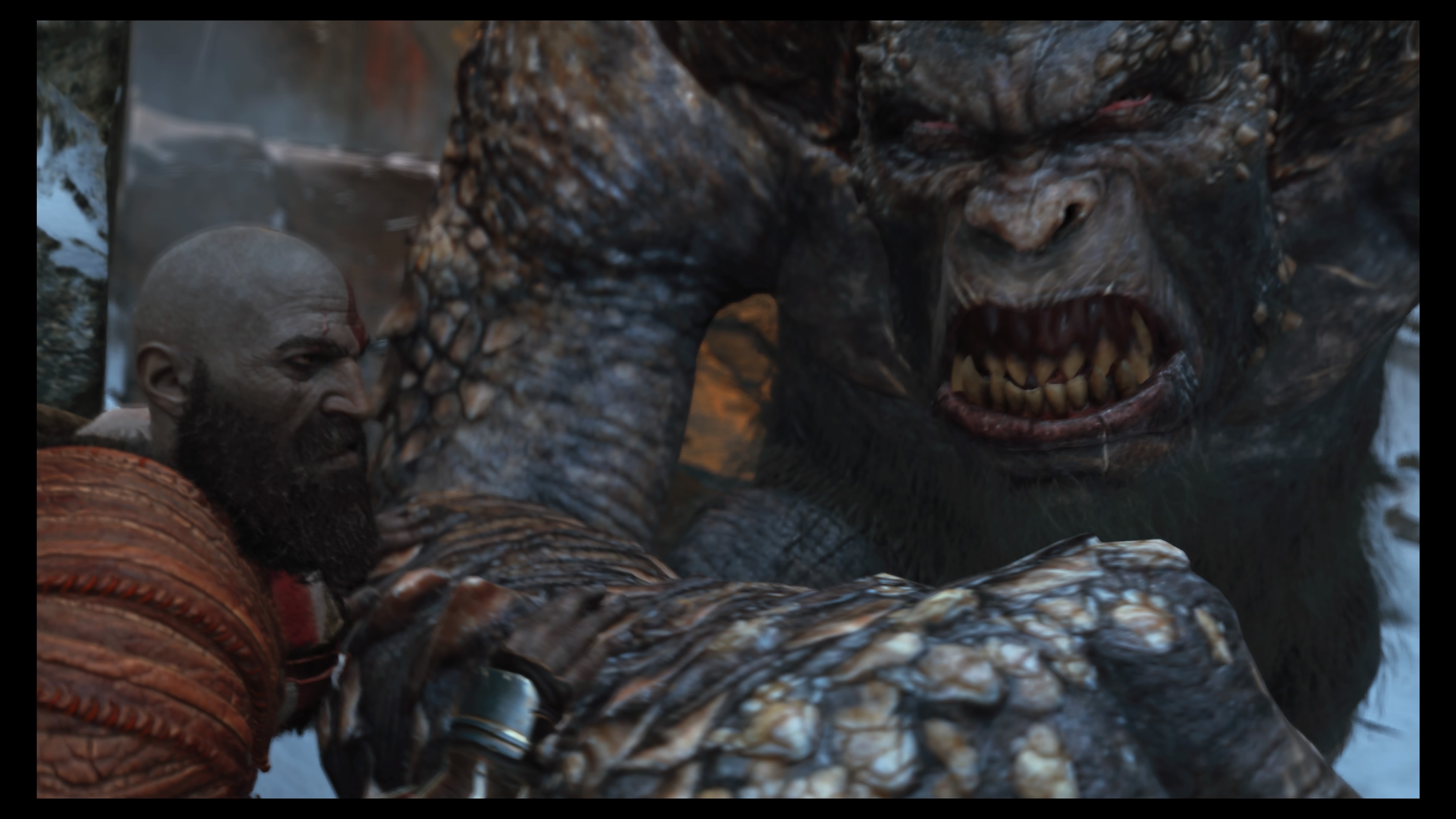
Above: Kratos still fights plenty of monsters.
Intense combat
God of War has more in common with The Last of Us than a child/father relationship. Previous God of War games use high-angled cameras that gave you a view of Kratos and most of his surroundings. For this reboot/sequel, director Cory Barlog has dropped the point of view behind your back, similar to a third-person shooter.
But this is not a shooter. You’re still using weapons and magic to attack enemies, and the closer camera angle has an intensifying effect on combat. No, it’s not Dark Souls. But the action is slower and less dependent on combos than before. Much of the combat revolves around keeping track of the multiple enemies you engage, a more difficult task when you can’t easily see behind you.
The perspective adds drama to fights. You see the details in your enemies and the weight in Kratos’s blows.
And while combat doesn’t rely as much on combos, it can still be flashy. Instead of his chain-daggers, Kratos has a magical axe. You can swing it like a normal weapon, but you can also throw it … and then summon it right back to your hand. It works akin to Thor’s magical hammer from the Marvel comics and movies, and it’s just as awesome as it sounds. With its freezing powers, the axe also serves as the key to a number of puzzles.
Atreus has a role in combat as well. While you control Kratos, you can still order your son to shoot arrows and use other skills. These can go a long way toward keeping enemies distracted and dazed. It has you feel like you’re controlling a team instead of a single fighter.
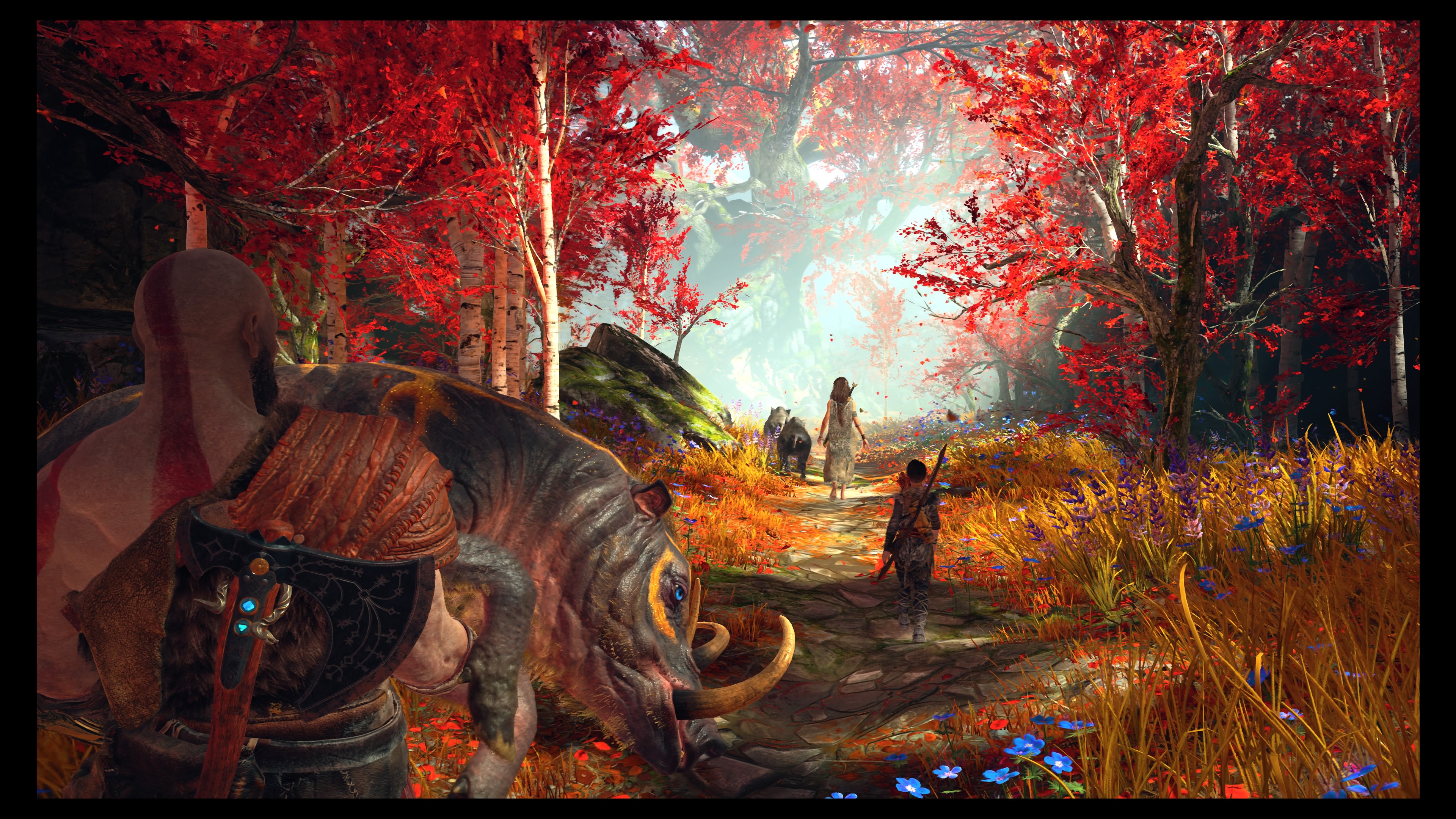
Above: Pretty.
A beautiful, connected world
God of War is an open-world game, but not in the way you might think. Its world is large and connected, but don’t expect Far Cry or Horizon: Zero Dawn. You’ll find few empty spaces or trivial sidequests. Every part of the world feels big and distinct.
It’s a beautiful and detailed setting — one of the most gorgeous I’ve ever seen.
Instead of today’s open-world games, God of War reminds me of Metroid Prime. It’s big, with many paths, but places have a way of connecting back to hubs or other shortcuts. And just like with Metroid Prime, the world encourages you to explore far-flung areas and search for secrets. You’ll even acquire abilities later in the game that help you access new places and unlock treasures.
What you won’t like
It’s … different
The original God of War games are good. Some of them are great. They have a lot of fans, and not all of them will be happy to see just how much Sony has changed Kratos and his world. Even as much as I love this new game, I did have times where I yearned for something faster. In the older God of War games, you could kill dozens of enemies with a few combos. It could make you feel like a god. The combat here is slower.
The new mechanics work and are satisfying, but they do, in a way, feel unlike God of War. If you’re nostalgic for something like the original, this may not satisfy you.
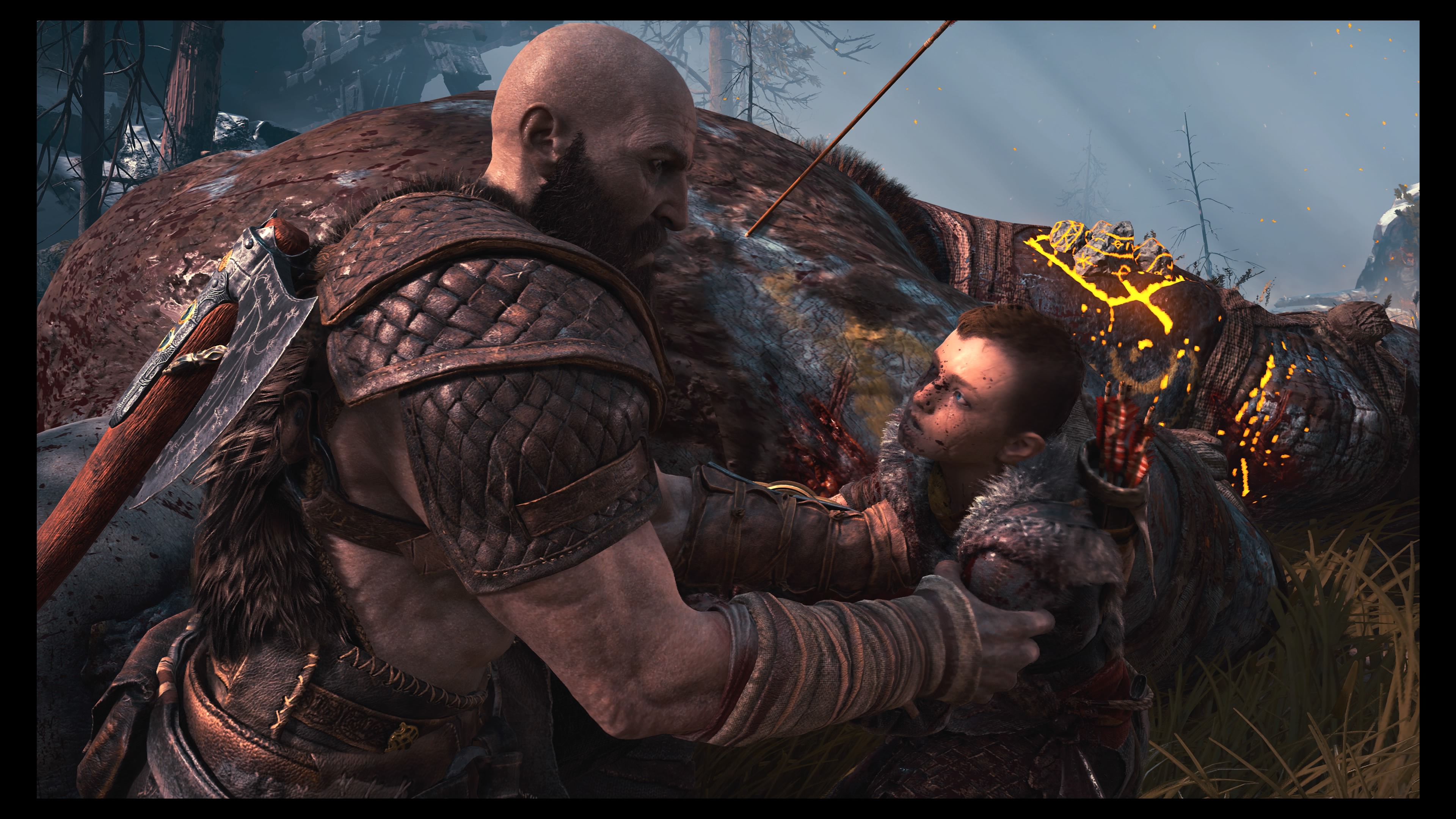
Above: “Uh, you got something on your face.”
Conclusion
This new God of War takes a lot of risks. It trades blind rage and revenge for a story about a troubled father/son relationship. It ditches fast, combo-based violence for something more methodical. It’s a departure from everything that once was God of War.
But almost all of these risks pay off. God of War is an exhilarating, beautiful action game that turns one of PlayStation’s biggest icons into a character you can care about.
Score: 90/100
God of War comes out for the PlayStation 4 on April 20. Sony provided us a code for this review.
